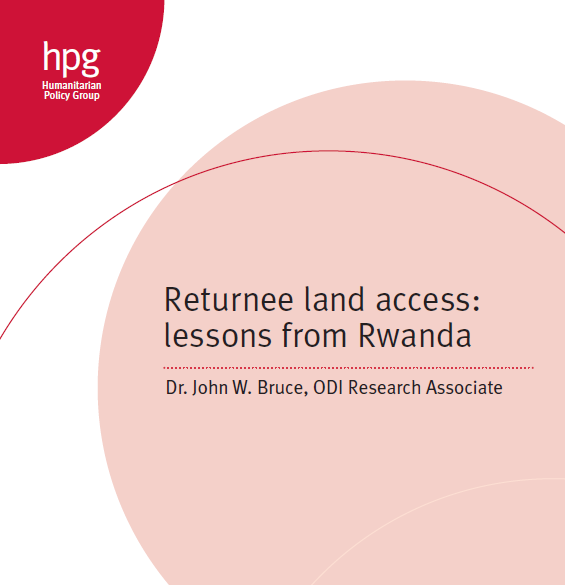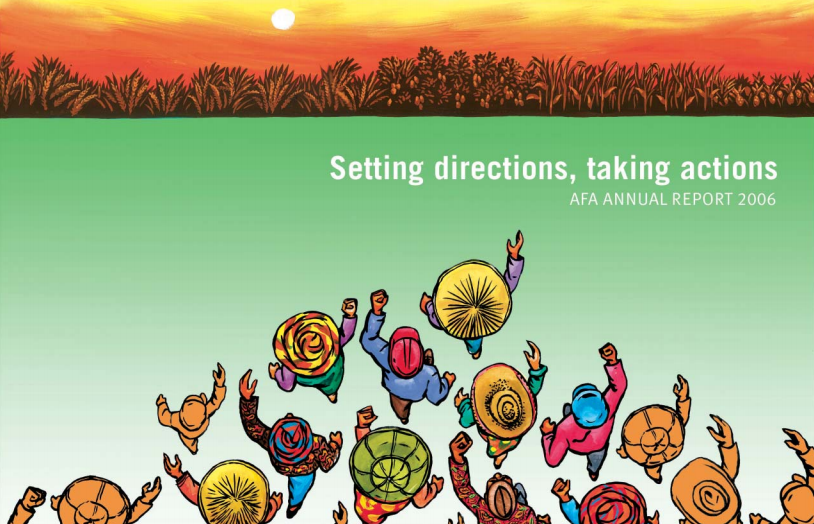Returnee land access: lessons from Rwanda
This background briefing reports on a study of land access for returnees in Rwanda, and the impacts of land access policies in the post-conflict period. It also seeks to understand better the roles international humanitarian agencies and NGOs have played, and how their performance can be improved. It is not suggested that Rwanda is typical, but rather that the centrality of land issues there has thrown up a revealing set of broader questions.
The briefing ends with the following lessons;









